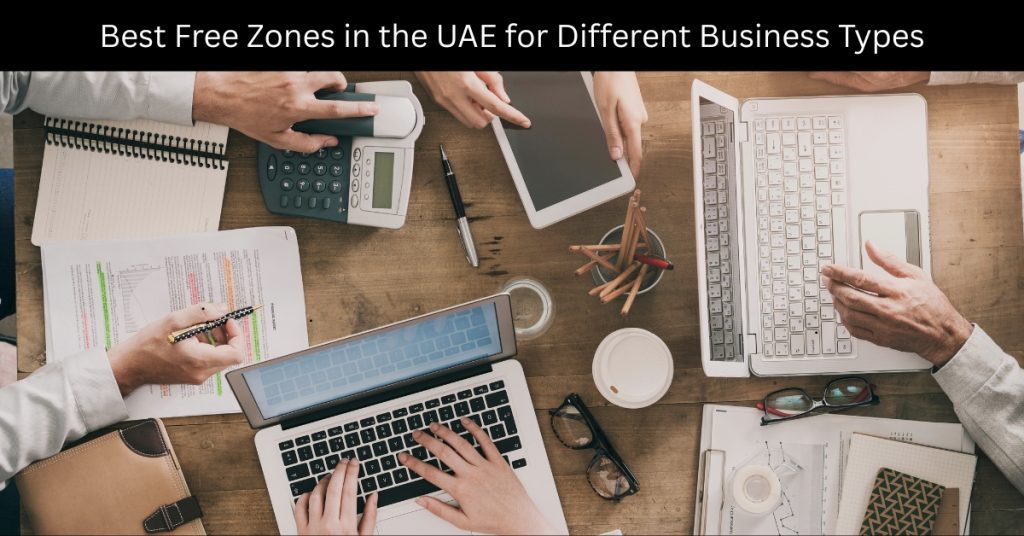Starting a business in Dubai in 2025 has never been more attractive for entrepreneurs and investors worldwide. This blog article walks you through the entire process from conceptualization to operation, covering everything you need to know about establishing your presence in one of the world’s most dynamic business hubs.
With its strategic location connecting East and West, zero corporate tax options in free zones, world-class infrastructure, and business-friendly regulations, Dubai offers unparalleled opportunities for business growth.
Whether you’re considering a mainland company, free zone entity, or offshore structure, this step-by-step guide provides practical insights into licensing requirements, location selection, banking setup, visa processes, and marketing strategies tailored to the Dubai market.
By following these actionable steps and understanding the nuances of Dubai’s business ecosystem, you’ll be well-positioned to join the thousands of successful entrepreneurs who have made Dubai their business home.
Key Takeaways!
| Business Aspect | Key Takeaway |
|---|---|
| Business Structures | Choose between mainland (100% foreign ownership now available in many sectors), free zone (100% ownership with tax benefits), and offshore options based on your target market and business goals |
| Initial Planning | Conduct thorough market research and develop a comprehensive business plan before proceeding with registration |
| Location Selection | Select from 30+ specialized free zones based on your industry or choose mainland locations for unrestricted UAE market access |
| Licensing Process | Budget 2-4 weeks for free zone setup and 3-6 weeks for mainland business establishment with all proper documentation |
| Documentation | Prepare and authenticate all required documents, including passport copies, business plans, and corporate documents |
| Banking | Compare offerings from local and international banks; prepare for detailed compliance checks during account opening |
| Taxation | Understand UAE’s corporate tax framework, with potential exemptions in free zones and VAT obligations |
| Physical Premises | Consider options ranging from traditional offices to coworking spaces, with mandatory Ejari registration for leases |
| Visa Processes | Budget for establishment cards and employee sponsorship based on company size and structure |
| Marketing | Develop both digital and traditional marketing strategies adapted to Dubai’s multicultural business environment |
Understanding Dubai’s Business Ecosystem in 2025
1. Economic Outlook and Business Climate
Dubai’s economy continues to diversify beyond its traditional pillars of trade, tourism, and real estate. In 2025, sectors such as technology, renewable energy, healthcare, education, and financial services are experiencing significant growth, supported by government initiatives like Dubai Economic Agenda D33, which aims to double the size of Dubai’s economy by 2033.
The business climate remains highly favorable, characterized by:
- Political and economic stability
- Minimal bureaucracy compared to other regional business centers
- Strong legal framework protecting business interests
- State-of-the-art infrastructure
- Access to skilled talent from around the world

2. Types of Business Structures in Dubai
Before starting your business journey in Dubai, it’s crucial to understand the different business structures available and choose the one that best suits your needs:
- Free Zone Company: 100% foreign ownership, tax exemptions, and full repatriation of profits. Ideal for businesses focusing on international trade.
- Mainland Company: Allows you to conduct business throughout the UAE without restrictions, but traditionally required a local sponsor with 51% ownership. However, 2021 reforms allow 100% foreign ownership in many sectors.
- Offshore Company: Suitable for holding assets, investments, and intellectual property, with limited operational capabilities within the UAE.
- Branch Office: An extension of a foreign company with the same name and activities, requiring a local service agent.
- Representative Office: Limited to promoting the parent company’s products/services without engaging in direct business activities.
Let’s compare these options in detail:
| Business Structure | Foreign Ownership | Local Sponsor Required | Tax Benefits | Market Access | Initial Setup Cost |
|---|---|---|---|---|---|
| Free Zone Company | 100% | No | Full tax exemption for a specific period | Limited to free zone and international markets | Medium to High |
| Mainland Company | Up to 100% (sector dependent) | No (for many sectors) | Standard tax regime | Full UAE market | Medium to High |
| Offshore Company | 100% | No | Full tax exemption | Limited to holding activities | Low to Medium |
| Branch Office | 100% | Local service agent required | Standard tax regime | Full UAE market | Medium |
| Representative Office | 100% | Local service agent required | Standard tax regime | No direct business allowed | Low to Medium |
Step 1: Define Your Business Concept and Conduct Market Research
1. Identifying Your Niche
Before diving into the procedural aspects of business setup, take time to define your business concept and ensure it addresses a specific need in the Dubai market. Consider:
- Market gaps that your product or service can fill
- Competitive landscape in your industry
- Unique value proposition that differentiates your business
- Alignment with Dubai’s strategic vision and growth sectors
2. Conducting Thorough Market Research
Effective market research is essential to validate your business idea and develop a strategy that resonates with your target audience in Dubai:
- Analyze demographic trends and consumer behavior
- Study competitor strategies and identify opportunities for differentiation
- Understand the regulatory environment specific to your industry
- Evaluate pricing strategies that work in the Dubai market
- Identify potential partnerships or distribution channels

Step 2: Creating a Solid Business Plan
A comprehensive business plan serves as your roadmap and is essential when seeking financing, partners, or licensing approvals. Your business plan should include:
1. Executive Summary
Provide a concise overview of your business concept, target market, unique selling proposition, and financial projections.
2. Business Description
Detail your company’s structure, mission, vision, and the products or services you’ll offer.
3. Market Analysis
Present your research findings on the Dubai market, including size, growth potential, target demographics, and competitive landscape.
4. Organizational Structure
Outline your management team, their roles, responsibilities, and relevant experience.
5. Marketing Strategy
Explain how you’ll position your business in the market and acquire customers through digital marketing, networking, partnerships, and other channels.
6. Financial Projections
Include detailed forecasts for:
- Startup costs
- Operating expenses
- Revenue projections for at least three years
- Break-even analysis
- Cash flow statements
Step 3: Choosing the Right Business Structure and Location
1. Selecting Your Business Structure
Based on your business model, target market, and long-term goals, determine which business structure aligns best with your vision. Consider factors such as:
- Scope of business activities
- Target markets (local vs. international)
- Capital requirements
- Ownership preferences
- Tax considerations
- Exit strategy
2. Deciding Between Mainland and Free Zone
If you’re torn between mainland and free zone options, consider these additional factors:
Choose a mainland company if:
- You need to conduct business directly with the local UAE market
- Your business requires multiple physical locations across Dubai
- You plan to pursue government contracts
- Your business model involves direct imports/exports within the UAE
Choose a free zone company if:
- You primarily target international markets
- You want to maintain 100% ownership in sectors where mainland restrictions still apply
- You’re looking to minimize tax liabilities
- You prefer a simplified setup process
- Your industry aligns with a specialized free zone (e.g., technology, media, healthcare)
3. Selecting the Optimal Free Zone
Dubai hosts over 30 specialized free zones, each catering to specific industries. Some of the prominent options in 2025 include:
- Dubai Multi Commodities Centre (DMCC): Ideal for trading, commodities, and financial services
- Dubai Internet City (DIC): Perfect for technology, software development, and IT services
- Dubai Media City (DMC): Suited for media and creative industries
- Dubai Healthcare City (DHCC): Specialized for healthcare and medical services
- Dubai International Financial Centre (DIFC): Focused on financial and banking services
- Dubai South: Strategic for logistics and aviation-related businesses
- Dubai Production City: Tailored for publishing, printing, and packaging companies
Step 4: Registering Your Business Name and Obtaining Initial Approvals
1. Business Name Registration
Select a name that is:
- Aligned with your brand identity
- Not already registered by another company
- Compliant with UAE naming conventions (avoiding offensive terms, religious references, etc.)
- Available as a domain name for your online presence
Submit your proposed name to the Department of Economic Development (DED) for mainland businesses or to the relevant free zone authority for approval.
2. Initial Approval Process
Once your business name is approved:
- Submit your business plan and required documents to obtain initial approval
- For mainland companies, apply through the DED’s online portal
- For free zone companies, apply through the specific free zone authority
- Pay the initial approval fee
- Receive your initial approval certificate, valid for six months

Step 5: Preparing and Submitting Legal Documentation
3. Essential Documentation
Prepare the following documents (requirements may vary based on your business structure):
- Passport copies of all shareholders and directors
- Completed application forms specific to your chosen jurisdiction
- Business plan
- Bank reference letters for all shareholders
- No objection certificate from current UAE sponsor (if applicable)
- Attested educational certificates (for certain professional activities)
- Articles of Association and Memorandum of Association
- Resolution of the board of directors approving the establishment of the company
4. Document Authentication
For foreign documents, ensure proper authentication:
- Notarization in the country of origin
- Authentication by the UAE embassy in your country
- Attestation by the Ministry of Foreign Affairs in the UAE
Step 6: Securing Your Business License
1. Types of Licenses
Depending on your business activities, you’ll need one or more of these licenses:
- Commercial license: For trading and retail activities
- Professional license: For services and professional practitioners
- Industrial license: For manufacturing and industrial activities
- Tourism license: For travel, hospitality, and tourism-related businesses
2. License Application Process
- Submit your complete documentation package and license application
- Pay the license fee (varies based on business type and location)
- Undergo inspection of your premises (if applicable)
- Receive your business license, typically valid for one year

Step 7: Setting Up Your Corporate Bank Account
3. Selecting the Right Bank
Dubai offers a wide range of banking options, from local institutions to international banks. Consider:
- Banking fees and minimum balance requirements
- Online banking capabilities
- International transfer fees and processes
- Currency exchange services
- Relationship management services
- Lending and credit facilities
Leading banks serving businesses in Dubai include Emirates NBD, ADCB, Mashreq, HSBC, and Standard Chartered.
4. Documents Required for Account Opening
Typically, you’ll need:
- Business license
- Certificate of incorporation
- Articles of Association
- Board resolution authorizing account opening
- Passport copies and visa copies of signatories
- Company profile
- Business plan (for new businesses)
Step 8: Securing Your Physical Premises
5. Office Space Options
Dubai offers various options for physical premises:
- Traditional office space in commercial buildings
- Coworking spaces for flexible arrangements
- Serviced offices with all-inclusive packages
- Virtual offices for businesses not requiring physical presence
- Retail spaces in malls and commercial areas
- Warehousing and industrial units in industrial zones
6. Lease Agreement and Ejari Registration
Once you’ve selected your premises:
- Negotiate the lease terms (duration, rental amount, payment schedule, etc.)
- Sign the lease agreement
- Register the lease with Ejari (Dubai’s online rental system)
- Pay the Ejari registration fee (approximately 3.5% of the annual rent)

Step 9: Fulfilling Additional Regulatory Requirements
1. Establishing Your Corporate Tax Structure
With the introduction of corporate tax in the UAE, understand your tax obligations:
- Register for tax purposes with the Federal Tax Authority
- Set up proper accounting systems for tax compliance
- Consider free zone tax exemptions when applicable
- Consult with a tax advisor to optimize your tax structure
2. Obtaining Industry-Specific Approvals
Depending on your industry, you may need additional approvals from:
- Dubai Municipality
- Dubai Health Authority
- Knowledge and Human Development Authority (for educational institutions)
- Dubai Tourism
- Other regulatory bodies specific to your industry
3. Registering for VAT
If your taxable supplies and imports exceed AED 375,000 annually:
- Register for Value Added Tax (VAT) with the Federal Tax Authority
- Implement systems to collect and remit VAT
- Prepare for regular VAT returns and compliance
Step 10: Recruiting Your Team and Navigating Employment Laws
1. Understanding UAE Labor Laws
Familiarize yourself with key aspects of UAE employment regulations:
- Contract types and requirements
- Probation periods
- Working hours and overtime rules
- Leave entitlements
- End-of-service benefits
- Termination procedures
2. Securing Work Visas for Your Team
To sponsor employees:
- Apply for an establishment card through the Ministry of Human Resources and Emiratisation
- Secure quota approvals for the number of visas you can sponsor
- Process residence visas for employees through the General Directorate of Residency and Foreigners Affairs
- Arrange medical examinations and Emirates ID registrations for all employees
3. Mandatory Employee Benefits
Ensure compliance with mandatory benefits:
- End-of-service gratuity
- Annual leave
- Sick leave
- Health insurance
- Workplace insurance

Step 11: Marketing Your Business in Dubai
1. Digital Marketing Strategies
Develop a robust online presence through:
- Localized website with Arabic and English versions
- Search engine optimization targeting Dubai-specific keywords
- Social media marketing focused on platforms popular in the UAE (Instagram, LinkedIn, Twitter)
- Paid advertising campaigns targeting your specific demographic
- Content marketing addressing local market needs and interests
2. Networking and Building Partnerships
Leverage Dubai’s extensive business network through:
- Industry-specific exhibitions and conferences
- Chamber of Commerce events
- Embassy and consulate business forums
- Industry associations
- Business councils
3. Local Marketing Considerations
Adapt your marketing approach to the local context:
- Respect cultural sensitivities and religious observances
- Incorporate multilingual communication
- Account for seasonal factors (Ramadan, summer months, etc.)
- Leverage local influencers and partnerships
Conclusion: Your Dubai Business Journey
Starting a business in Dubai in 2025 offers unparalleled opportunities for entrepreneurs with the right vision and preparation. The emirate’s strategic location, world-class infrastructure, favorable tax environment, and commitment to innovation create an ideal ecosystem for business growth and expansion.
By following this step-by-step guide, you’ll be well-equipped to navigate the process of establishing your business in Dubai, from conceptualization and planning to licensing, setup, and operation. Remember that while the process has been streamlined considerably in recent years, working with experienced advisors can help you avoid pitfalls and accelerate your path to success.
As Dubai continues to evolve its business landscape and regulatory framework, staying informed about the latest developments and adapting your strategies accordingly will be crucial to your long-term success in this dynamic market.
With careful planning, thorough research, and strategic execution, your Dubai business venture has every opportunity to thrive in one of the world’s most exciting and rapidly growing economies.
Frequently Asked Questions
Q: How long does it take to set up a business in Dubai? A: Typically, the process takes 2-4 weeks for free zone companies and 3-6 weeks for mainland companies, depending on the complexity of your business and the completeness of your documentation.
Q: What is the minimum capital requirement to start a business in Dubai? A: Capital requirements vary by business type and jurisdiction. Many free zones have eliminated minimum capital requirements, while mainland companies may require proof of capital adequacy based on your business activities.
Q: Can I operate my Dubai business remotely? A: Yes, certain business structures allow for remote management, particularly with the rise of virtual offices and digital services. However, physical presence may be required for specific operational and regulatory matters.
Q: What are the ongoing compliance requirements for businesses in Dubai? A: These include annual license renewal, maintaining proper financial records, submitting VAT returns (if registered), complying with UAE Labor Law, and fulfilling any industry-specific regulatory requirements.
Q: How does the corporate tax implementation affect new businesses? A: New businesses are subject to the UAE’s corporate tax regime, with certain exemptions available in free zones. Consult with a tax advisor to understand your specific tax obligations and available exemptions



